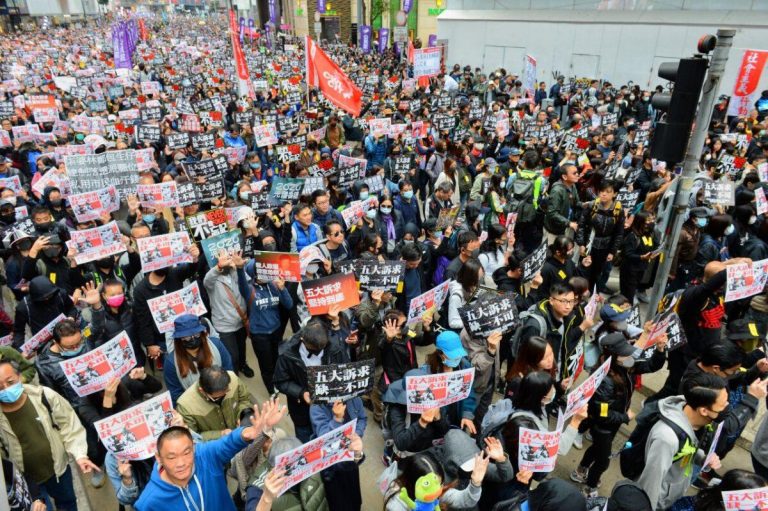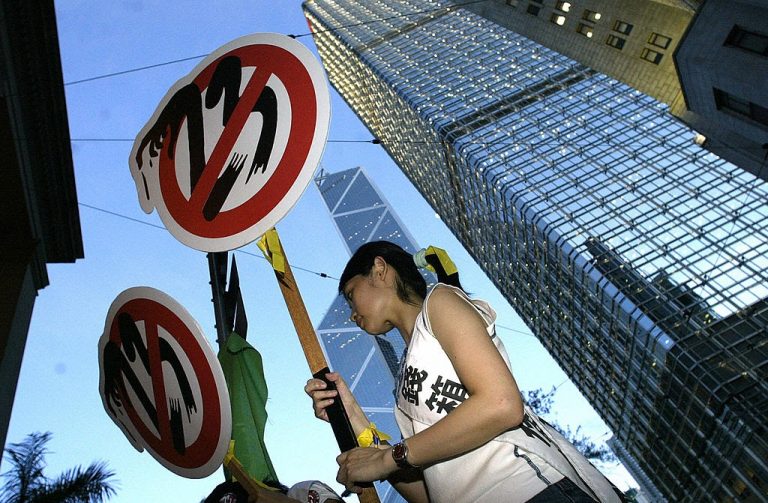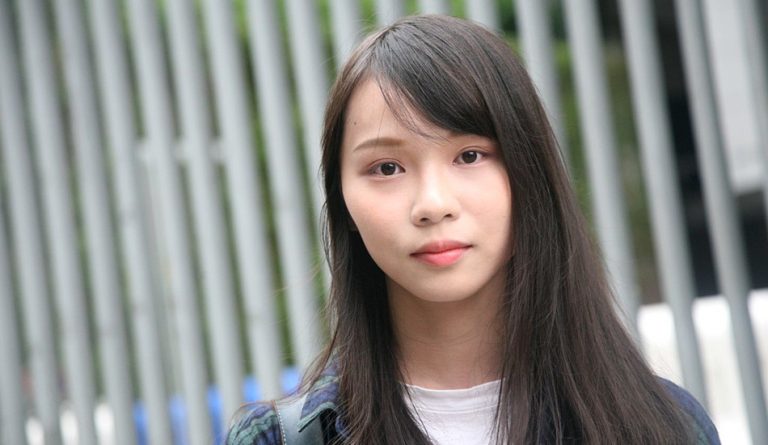In 2003, half a million Hongkongers marched to protest the planned activation of Article 23, which would threaten political freedoms in their city just six years after its return to China from British colonial rule.
On Aug. 15, the organization that put together the protest — and many after it — was forced to disband.
Founded in September 2002, the Hong Kong Civil Human Rights Front announced its dissolution after the city’s police went forward with an investigation into the group.
“In the course of over a year, the [Hong Kong] government, in the name of the pandemic, continuously turned down march applications by the CHRF and other organizations,” the CHRF stated.
In 2019, the CHRF became the backbone of massive pro-democracy demonstrations in the city, sparked by the rejection of a controversial bill that would allow extradition to mainland China. Several protests that year saw more than 1 million Hongkongers take to the streets. The largest was on June 16, 2019, which saw 2.03 million of the city’s 7 million residents march to voice their disapproval of the extradition bill, as well as call for broader democratic reforms in Hong Kong.
Success
You are now signed up for our newsletter
Success
Check your email to complete sign up
By mid-2020, however, protests had been worn down by a combination of police suppression, coronavirus lockdowns, and finally, the National Security Law, imposed by Beijing via Communist China’s nominal legislature, the National People’s Congress.
The NSL, which bans most forms of free speech and includes a maximum penalty of life imprisonment, has made it nearly impossible to run political opposition in Hong Kong.
“Many of our member groups are under oppression, as [the city’s] civil society is facing unprecedented challenges,” the CHRF stated.
The Hong Kong police have stated they will continue their investigation into the “criminal activities” of the Front.













